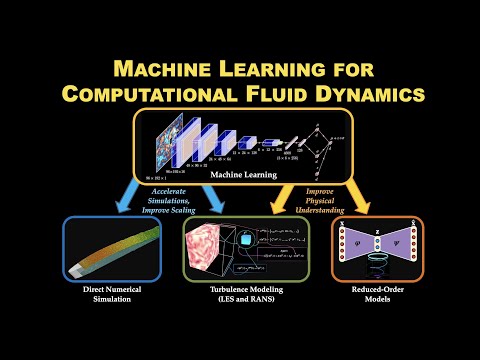Description:
Explore the potential of machine learning to revolutionize computational fluid dynamics in this 39-minute conference talk by Steve Brunton. Delve into key areas where machine learning can make significant impacts, including accelerating direct numerical simulations, improving turbulence closure modeling, and developing enhanced reduced-order models. Learn how incorporating physics into machine learning processes can lead to improved fluid simulations and new physical insights. Discover the importance of establishing benchmark systems, open-source software, data sharing, and reproducible research practices in harnessing machine learning's full potential for computational fluid dynamics. Gain insights into various topics such as data-driven discretizations for partial differential equations, enhancement of shock capturing schemes, convolutional LSTM for PDEs, Reynolds Averaged Navier Stokes (RANS) closure models, and sparse turbulence models.

Machine Learning for Computational Fluid Dynamics
Add to list
#Computer Science
#Machine Learning
#Science
#Physics
#Fluid Mechanics
#Fluid Dynamics
#Computational Fluid Dynamics
#Mathematics
#Differential Equations
#Partial Differential Equations